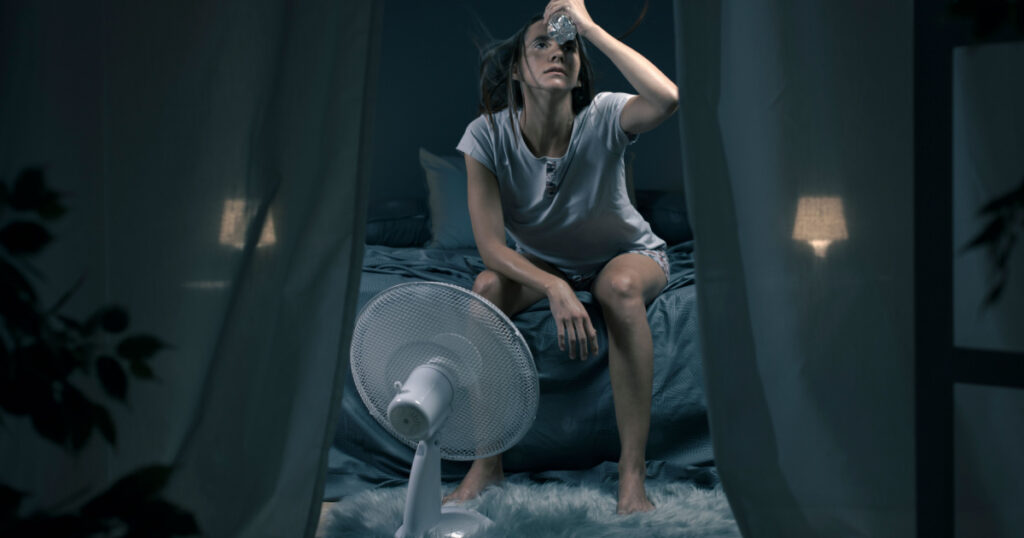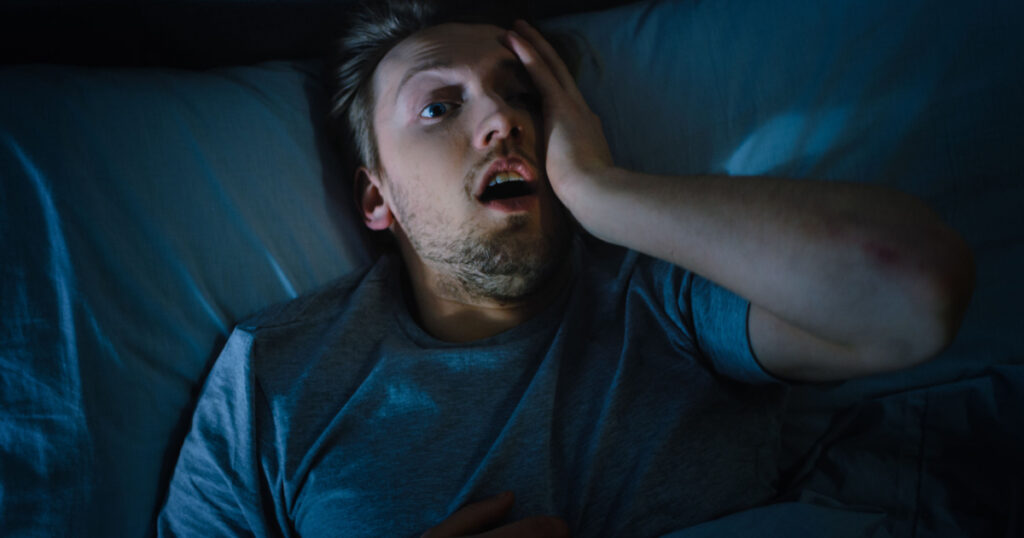Cancer is the #1 leading cause of death worldwide, causing almost 10 million deaths in 2020 [1]. It’s also the second leading cause of death in the United States, just behind heart disease [2]. Because of its commonality, almost everyone has some connection to the disease. Those who never experienced it firsthand most likely know someone — or multiple people — who did. As a result, there’s a lot of fear surrounding the topic of cancer. Fortunately, a cancer diagnosis today is not the death sentence it used to be. In fact, many cancers have a high chance of a cure if they are diagnosed early and treated properly. Therefore, it’s important to know the warning signs of cancer and to speak to a medical professional if they arise.
Read: 5 Signs of Bowel Cancer You Shouldn’t Ignore in the New Year
A cancer symptom that appears at night

It’s important to note that many cancer symptoms overlap with many other medical conditions. It’s practically a cliche to web-search about a symptom and get cancer-related search results. These symptoms often don’t come from cancer, but it’s worth visiting a medical professional if they don’t go away. Remember, these symptoms should not cause panic; they’re more likely to come from many other conditions. But it’s important to follow up on any persisting health issues, cancer or not.
The Lesser-Known Cancer Symptom

With that in mind, let’s talk about one lesser-known cancer symptom: night sweats. Sweating is a natural function to cool off the body, and it’s normal to feel a little sweaty when sleeping in a hot room or with too many blankets. Night sweats are much more intense, often drenching through pajamas and bedding until they are too wet to sleep in. This can occur no matter the room’s temperature.
Night sweats can occur as an early sign of different cancers, including liver, bone, leukemia, lymphoma, mesothelioma, and carcinoid tumors. It’s unclear why these conditions cause night sweats, but some theories claim that the body is trying to fight the disease. Other theories include hormone changes, cancer-causing fevers, and side effects of cancer treatments like chemotherapy. [3]
Read: The Benefits of Eating Eggs (Even Everyday)
Other reasons for night sweats

Remember, if night sweats are caused by cancer, they would be accompanied by other symptoms like fevers and unexplained weight loss. There are many other medical reasons for night sweats. Night sweats could also come from environmental and lifestyle choices.
Avoiding these factors could reduce and even cure the problem:

- Hyperthyroidism
- Perimenopause and menopause
- Hormone and blood flow changes during pregnancy
- Idiopathic hyperhidrosis is a condition that causes spontaneous and excessive sweating
- Low blood sugar or hypoglycemia
- Stress and anxiety
- Medications like fever reducers, hormone therapies, and antidepressants
- Drinking alcohol
- Lack of air-conditioning
- A thermostat set too high
- Eating spicy food soon before bed
- Exercising before bed
- Drinking hot beverages before bed
More cancer symptoms to look out for

- Fatigue or lethargy that doesn’t improve with rest
- Unexplained weight loss or weight gain of 10 pounds or more
- Unexplained pain that persists or worsens
- Unexplained bleeding and bruising
- Changes in the mouth, like sores, numbness, pain, or bleeding
- Headaches
- Problems with hearing or seeing
- Swelling, thickening, or lumps in the neck, breast, or any part of the body
- Changes on the skin, like a new mole or a noticeable difference with a mole, a sore that doesn’t heal, a bleeding or scaly lump, or jaundice (yellowing of the skin or eyes)
- A persisting cough or hoarseness
- Problems with eating, like lack of appetite, abdominal pain, nausea, trouble swallowing, or vomiting
- Problems with bowels, like persistent diarrhea or constipation, a shift in how bowel movements look, or blood in the stool
- Bladder issues, like blood in the urine, needing to urinate more or less often, or pain while urinating. [5]
Read: 10 sneaky symptoms of bladder cancer that every woman needs to know
When to see your doctor

Bear in mind this is not an exhaustive symptom list. If you notice any drastic changes in how your body works or feels, especially if they persist or worsen over time, talk to your doctor about it. Before your appointment, it may help to list questions or concerns you want to address. If the symptoms are unrelated to cancer, a doctor could still provide proper treatment for them.
However, if you think the night sweats or other symptoms may be from a serious medical condition like cancer, ask for tests to check it out. Don’t feel ashamed to ask questions or ask the doctor to explain something more thoroughly. If the doctor doesn’t address your concerns or acts dismissively, you may want a second opinion. Overall, if you suspect your symptoms may be cancer or another serious condition, don’t push off booking an appointment. Early treatment increases the chance of recovery. Additionally, if you have these persisting symptoms, but don’t suspect cancer, seek early treatment anyway. Many health conditions benefit from quick intervention and could worsen without proper treatment. [6]
Keep Reading: Researchers find that brains with more vitamin D function better
Sources
- “Cancer.” WHO. February 3, 2022
- “Leading Causes of Death” CDC. Retrieved December 14, 2022.
- “Are Night Sweats a Sign of Cancer?” Healthline. Annette McDermott. September 29, 2018
- “How to Spot the Early Warning Signs of Cancer.” WebMD. Stephanie Watson. May 7, 2022
- “Signs and Symptoms of Cancer.” American Cancer Society. November 6, 2020
- “Signs and symptoms of cancer.” Cancer Research UK. November 17, 2022
Disclaimer: This information is not intended to be a substitute for professional medical advice, diagnosis or treatment and is for information only. Always seek the advice of your physician or another qualified health provider with any questions about your medical condition and/or current medication. Do not disregard professional medical advice or delay seeking advice or treatment because of something you have read here.

